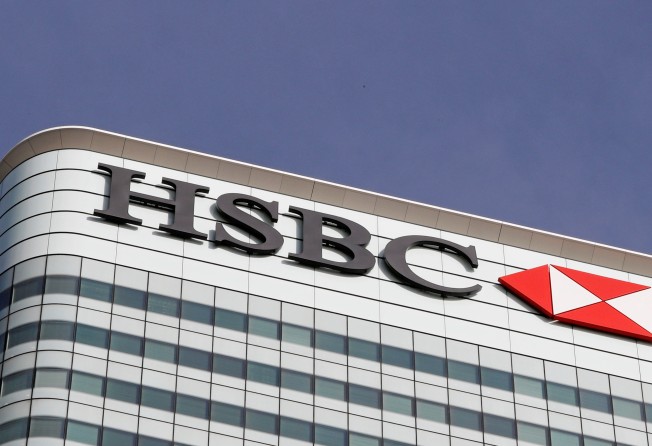HSBC CEO Flint says bulk of the group’s planned US$15-17b investment targeted at Asia
The bank is looking to grow wealth management business from China and Hong Kong and also rebuild its US consumer credit business

HSBC plans to invest US$15-17 billion in improving its technology and businesses in Asia where it anticipates growth, as it targets a return on tangible equity (RoTE) of over 11 per cent by 2020, new chief executive John Flint said on a conference call with analysts and reporters on Monday.
Flint, who took over from Stuart Gulliver in February, said following years of restructuring and cost-cutting, the group will target the fast-growing wealth in Asia, particularly China, to get back into “growth mode” and will invest in retail banking and wealth business, particularly in Hong Kong.
He, however, said that the group’s investment target and RoTE were subject to its revenue growth rate outpacing its costs in the coming financial years.
The RoTE of 11 per cent is equivalent to return on equity of 10 per cent, which the group had previously set as a target for this year. But Flint had already said during the group’s first-quarter 2018 results in May that this was unlikely to be achieved.
“In dollar terms, the biggest opportunity by customer group will come from retail banking and wealth management,” said Flint. “Wealth creation in Asia, particularly in Hong Kong through [China] is significant.”
Flint said the way that wealth creation in Greater China has accelerated over the past three years has made it apparent to the group that substantial business opportunity can be tapped through its retail banking and wealth businesses.
He said that China was still in the early stages of opening up its financial markets to foreign players, brushing aside suggestions that the group could be late to the game.
Europe’s largest bank is now targeting revenue growth of over US$3 billion from its Hong Kong business including retail banking, wealth management and others by 2020, and another US$1 billion-plus revenue growth from its wealth management business elsewhere in Asia.
Overall the group is targeting mid-single digit revenue growth per year up to 2020.
In Hong Kong, it will target investments in growing its millennial client base and non-resident Chinese customers.
With the highest compound annual growth rate expected at 9.9 per cent from 2016 to 2021, Asia ex-Japan will account for 28 per cent of the US$223 trillion private financial wealth globally, according to a BCG Global Wealth 2017 report. The middle class in Asia will grow 2.5 times to 3.5 billion by 2030 from 2015.
Turning to technology, the lion’s share of the group’s investment will be on new digital banking capabilities, such as those used in its wealth management and trade finance businesses. In the UK, HSBC will also invest in a mobile banking app that relies on artificial intelligence and data analytics.
Flint also said that the US remains an important market for the group.
HSBC had exited the US subprime mortgage businesses in 2007 amid the subprime crisis. In 2011, it sold and exited its credit card business to US bank Capital One.
But Flint said on Monday that the group has been rebuilding its credit card business over the last 12 months. In October 2017 it launched its own branded credit card in the US, adding that the right model to operate in the country was one backed by universal banking.
“[We] need to get all components of the business growing in the US. Without exposure in unsecured credit business, it is difficult to achieve the industry level of profitability if you just take deposits and [offer] mortgages using your balance sheet. So we need to build back unsecured, bank originated [consumer] credit business in the US,” said Flint.
The US is the biggest exporter of client outbound revenue to the group, representing revenue from US-managed companies that are booked outside the US primarily derived from its global banking and markets business and commercial banking.
Flint said HSBC was targeting an RoTE from the US of over 6 per cent by 2020, from -4.3 per cent reported in 2017.